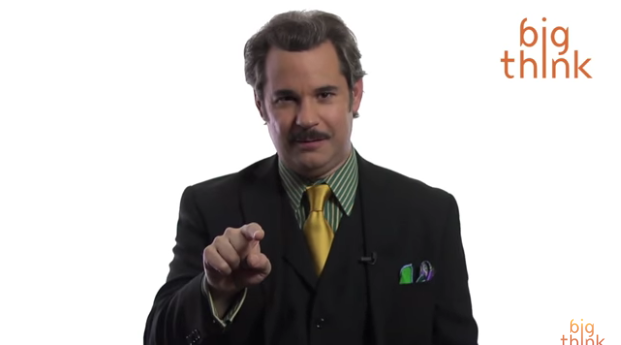Paul F. Tompkins: Political Correctness Keeps Comedy Fresh


If you think you know where you stand on the issue of political correctness, you might change your mind after you watch Paul F. Tompkins’ new video.
Before watching this video, I never thought political correctness could be positive for comedy. “PC” is generally considered a nuisance to comedy; something that nitpicks comedians on their wording, subject matter, and ideas. While watching the video, I had my defenses up. I expected to disagree with every point. I couldn’t understand how there was any way that political correctness could have a positive influence. After listening to Tompkins, I discovered a different way of looking at the issue. I might not agree with everything, but it has opened my eyes to some new ideas. Tompkins presents thought-provoking explanations as to why he believes political correctness is helping to keep comedy fresh.
Tompkins, known for his hilarious clean humor, is considered a giant in the alternative comedy scene. He has worked on Mr. Show with Bob and David, Real Time with Bill Maher, and Rolling Stone ranked his podcast #1 in 2011 for “The 10 Best Comedy Podcasts of the Moment.” Teaming up with Big Think, a website that hosts “fellows and guest speakers, who comprise the top thinkers and doers from around the globe,” Tompkins created this video to explain how he felt about what is now commonly described as “PC culture.” The video was posted Monday. Tompkins explains his counter argument to the widely accepted opinion that political correctness hurts comedy.
Tompkins doesn’t think anything is off limits for comedic material. Early in the video, he states, “I think you can make jokes about anything, but you have to accept that there will be people who don’t like it.” Tompkins describes the current state of sensitivity as a part of the “maturation process” in which we’re becoming more intelligent about how we communicate with each other. He later says that audiences aren’t trying to say that comedians can’t tell certain jokes, it’s that a joke at a certain instance might not have been funny. Maybe there are simply higher standards to controversial subjects and that audiences are actually trying to say, “If you’re going to make a joke about that, you better make it really funny.”
Blaming the audience for unfunny jokes is a bad habit for a comedian because it gives them an excuse not to work on their material. Without a doubt, there are audiences that have had too much to drink or that are not in ideal settings for comedians in the first place (a restaurant for example), but Tompkins reminds comics not to blame the audience for jokes falling flat. It may not be an overly sensitive audience, but maybe that the comedian needs to push themselves further in their work. He urges comics to avoid being lazy. It’s easy to use “it was a bad audience” or “they were too sensitive” as a crutch instead of revisiting and enhancing your material.
I didn’t necessarily agree with everything. Tompkins says, “It’s so rare that anyone says ‘you’re not allowed to joke about that.’” This resonated with me because I don’t think it’s rare for people to tell comedians what they can and can’t joke about. It’s done through what’s become an apology-obsessed culture in which you can make a joke, but you might feel pressure to make a public apology if you go too far – no matter how brilliant the material. One recent example– Natasha Leggero made an undeniably clever joke while hosting NBC’s New Year’s Eve with Carson Daly in 2014. Her joke about Pearl Harbor vets rubbed viewers the wrong way and Leggero was forced to respond to a backlash of tweets that all had the same message: this topic was off limits. Leggero bravely refused the demands for an apology and garnered support from fellow comedians. Her joke was arguably as funny as you can get about a touchy subject, but she still faced being told she was not allowed to be humorous about it.
The biggest takeaway from Tompkins’ video is the reminder that intent matters. It seems like audiences, media outlets, and social media followers often miss the comedian’s intention when they are pushing the envelope on a subject. Tompkins stresses that comics should practice making sure the intention of their material is clear.
Keeping an open mind is hard. I like to think I have an open mind, and then a video like this comes along and broadens my perspective. Though I don’t know if I can say I was completely persuaded that political correctness in comedy is a positive thing, I’m interested to hear more from Tompkins and other comedians who have this outlook (Sarah Silverman for example). I admire Tompkins for speaking his mind, and I am interested to see how the PC conversation will shape comedy in the future.
You can watch Paul’s “Big Think” below and check him out every Thursday night on Fusion hosting “No, You Shut Up!”
Read more comedy news, stories, interviews with comedians, videos and comedy clips on our home page. Get more comedy news. Watch more viral videos. Read more interviews with the best comics in the business.
.
